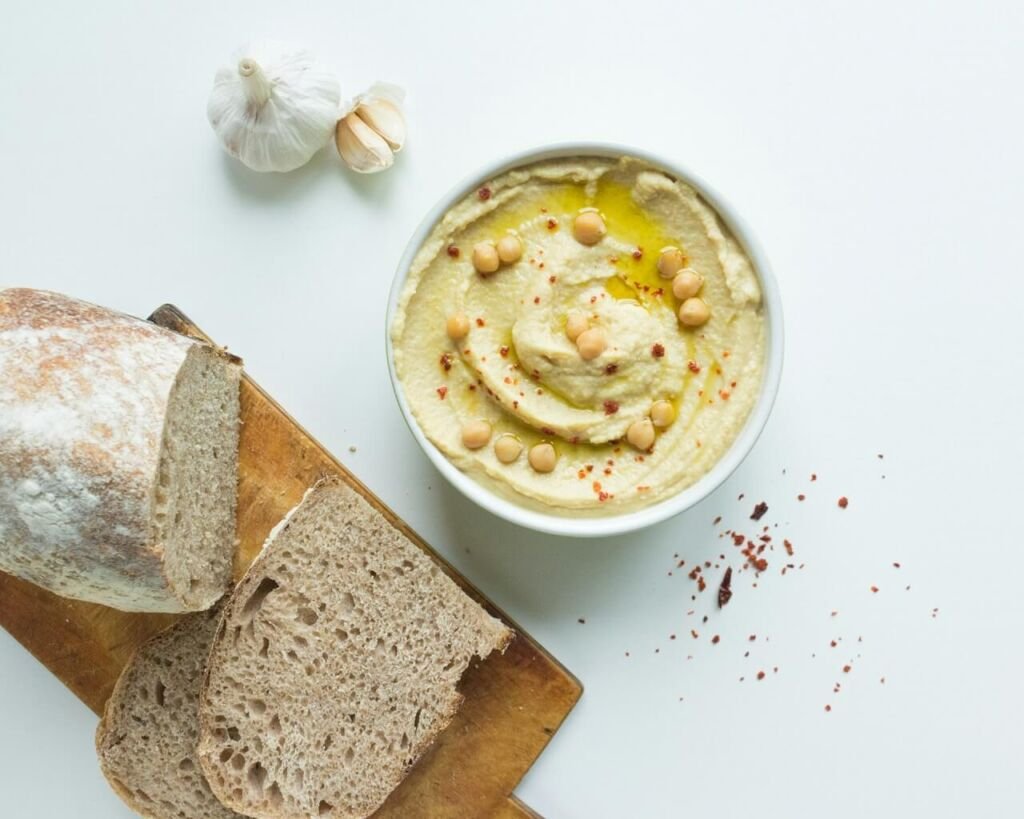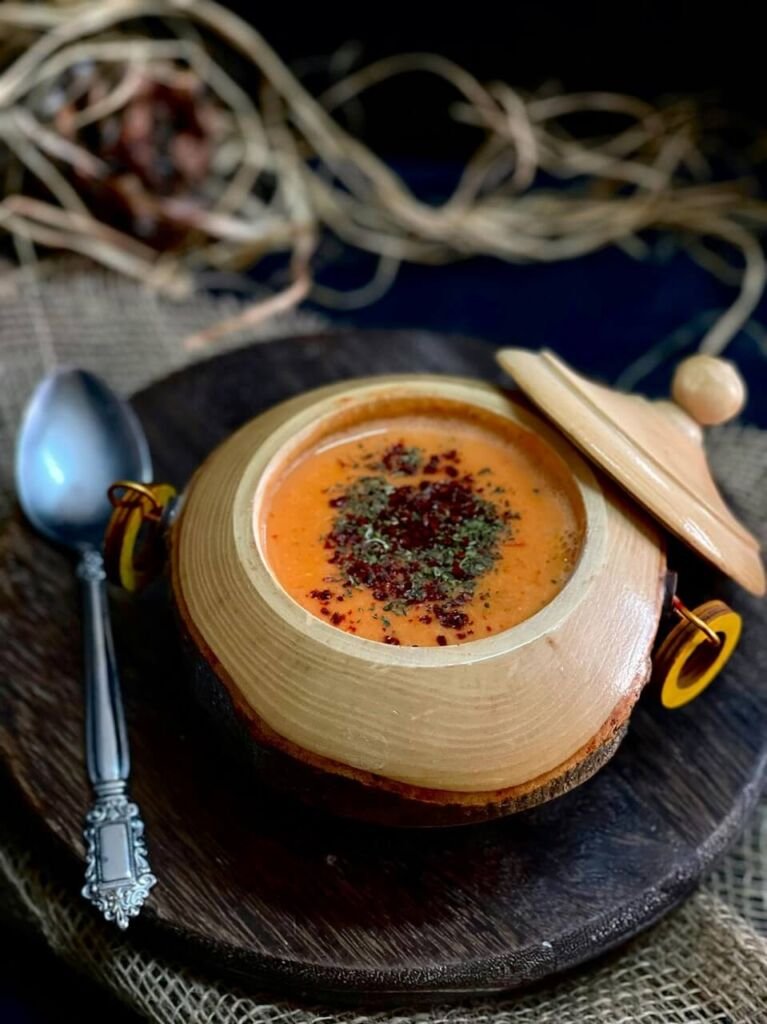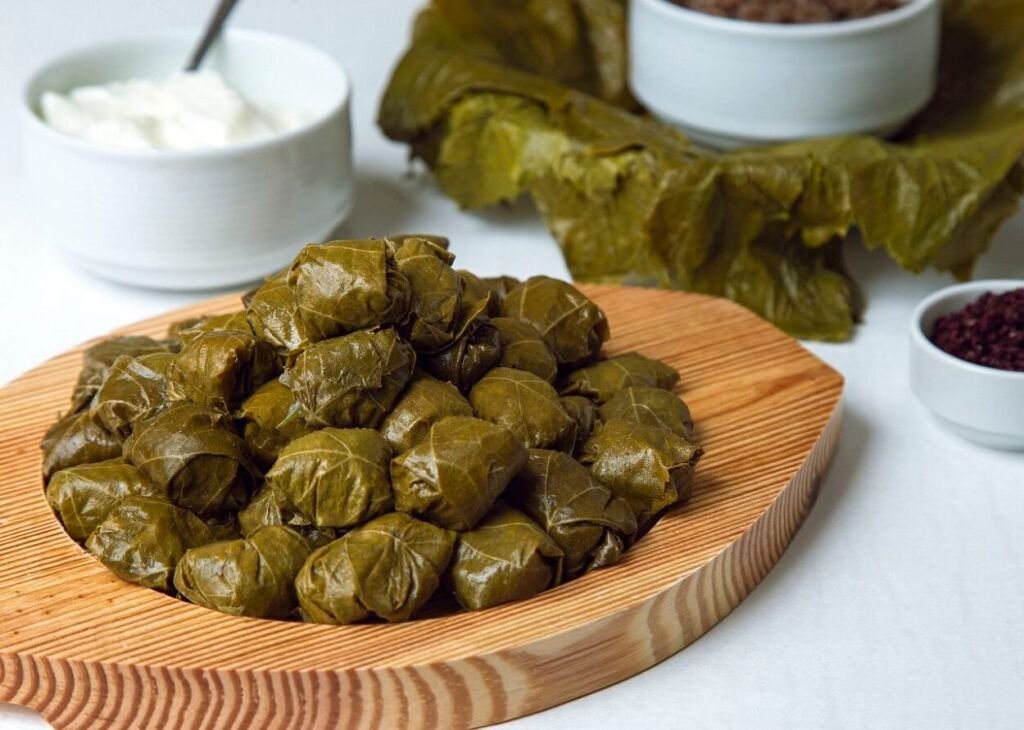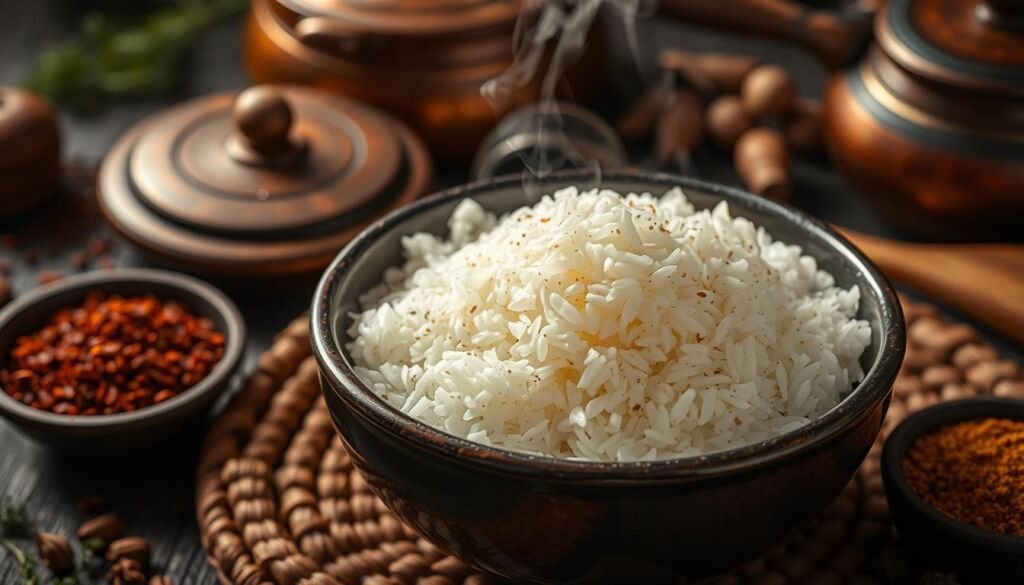Vegan Turkish Food: A Flavorful Guide to Plant-Based Delights
Table of Contents
ToggleTurkish cuisine, rooted in fresh vegetables, grains, legumes, and herbs, naturally offers a variety of vegan-friendly dishes.
From hearty lentil soups to savory stuffed vegetables, the rich flavors of Turkish food make it easy to enjoy a plant-based diet without compromising on taste.
Whether you’re dining at a local restaurant or cooking at home, there are plenty of options to savor.
Here’s a guide to some of the best vegan Turkish dishes and tips on enjoying Turkish cuisine as a vegan.
1. Vegan Starters and Mezes
Mezes, or small dishes served as appetizers, are a cornerstone of Turkish dining.

Many traditional mezes are naturally vegan and packed with flavor.
Popular Vegan Mezes
- Hummus: A creamy dip made from blended chickpeas, tahini, garlic, and lemon juice.
- Haydari (Vegan Version): A tangy dip made with dairy-free yogurt, garlic, and fresh herbs like dill.
- Patlıcan Ezmesi: A smoky roasted eggplant dip, similar to baba ghanoush.
- Çoban Salatası: Shepherd’s salad with tomatoes, cucumbers, onions, and parsley, dressed with lemon juice and olive oil.
- Fava: A creamy dish made from pureed fava beans, often garnished with olive oil and dill.
2. Hearty Vegan Soups
Soup is a staple in Turkish cuisine, and several options are naturally vegan or easily adapted.

Top Vegan Soups
- Mercimek Çorbası: Red lentil soup seasoned with cumin, paprika, and lemon juice.
- Tarhana Çorbası (Vegan Version): A traditional fermented soup made from sun-dried vegetables and grains, often prepared without dairy.
- Domates Çorbası: A rich tomato soup flavored with fresh herbs and olive oil.
3. Stuffed and Wrapped Delights
Stuffed vegetables and wrapped vine leaves, known as dolma and sarma, are quintessential Turkish dishes that are often vegan.’

Best Vegan Options
- Zeytinyağlı Dolma: Vegetables like peppers, zucchinis, or eggplants stuffed with a flavorful rice and herb mixture, cooked in olive oil.
- Sarma: Vine leaves stuffed with rice, pine nuts, currants, and spices like cinnamon and allspice, cooked in olive oil.
- Imam Bayıldı: Eggplants stuffed with tomatoes, onions, and garlic, then simmered in olive oil.
4. Vegan Grains and Salads
Grain-based dishes and salads are a highlight of Turkish cuisine, offering nutritious and filling vegan options.

Must-Try Dishes
- Kısır: A refreshing salad made with bulgur wheat, parsley, mint, tomatoes, and pomegranate molasses.
- Pilav: Rice pilaf cooked with vegetables, dried fruits, or nuts (ensure no butter is used).
- Bulgur Pilavı: A hearty dish made with bulgur, tomatoes, and bell peppers.
- Tabbouleh: A parsley and bulgur salad similar to the Lebanese version but with Turkish twists.
5. Bread and Pastries
Turkish bread and pastries are often vegan-friendly, as they are typically made without dairy or eggs.

Vegan Bread Options
- Simit: A circular bread coated with sesame seeds, often called Turkish bagels.
- Lavaş: A soft, thin flatbread used as a wrap or served with mezes.
- Ekmek: Traditional Turkish bread, perfect for dipping into olive oil or soups.
6. Vegan Street Foods
Turkish street food offers a variety of plant-based options that are both delicious and budget-friendly.

Popular Vegan Street Foods
- Kumpir (Vegan Style): A baked potato mashed with olive oil or vegan butter, topped with vegetables, olives, and salads.
- Roasted Chestnuts (Kestane): A warm and comforting snack, especially in winter.
- Corn on the Cob (Mısır): Boiled or grilled, often served with salt and lemon.
- Gözleme (Vegan Filling): A flatbread stuffed with spinach, potatoes, or mushrooms.
7. Sweet Vegan Desserts
Turkish desserts are known for their indulgence, and many options are naturally vegan or can be adapted.

Top Vegan Desserts
- Baklava (Vegan Version): Made with phyllo dough, nuts, and syrup, avoiding butter and honey.
- Lokum (Turkish Delight): A chewy confection made from sugar and starch, often flavored with rosewater or citrus.
- Aşure (Noah’s Pudding): A hearty dessert made from grains, dried fruits, and nuts, traditionally vegan.
- Cevizli Sucuk: A walnut-stuffed candy made with grape molasses.
Tips for Eating Vegan in Turkey
1. Learn Key Phrases
- “Veganım. Et, süt, yumurta yemem.” (I am vegan. I don’t eat meat, milk, or eggs.)
- “Bunun içinde et veya hayvansal ürün var mı?” (Does this contain meat or animal products?)
2. Ask About Ingredients
Some dishes may include butter, yogurt, or meat stock, so always confirm with the server or chef.
3. Visit Local Markets
Turkish markets are filled with fresh fruits, vegetables, nuts, and olives—perfect for creating your own vegan meals.
4. Explore Zeytinyağlı Dishes
Dishes cooked with olive oil (zeytinyağlı) are typically plant-based and highlight the fresh flavors of vegetables and herbs.
Conclusion
Vegan Turkish food is a celebration of fresh, wholesome ingredients and vibrant flavors. Whether you’re savoring a bowl of lentil soup, enjoying a plate of stuffed vine leaves, or indulging in vegan baklava, Turkish cuisine offers a diverse array of plant-based delights.
With its emphasis on vegetables, grains, and olive oil, Turkish food is naturally suited to a vegan lifestyle, making it easy to enjoy a delicious and satisfying experience.
What are the best vegan Turkish dishes to try?
Some of the best vegan Turkish dishes include lentil soup (mercimek çorbası), stuffed vine leaves (zeytinyağlı sarma), bulgur salad (kısır), roasted eggplant dip (patlıcan ezmesi), and vegan-style kumpir.
Is Turkish food vegan-friendly?
Yes, Turkish cuisine is highly vegan-friendly, offering a variety of plant-based dishes such as vegetable-based mezes, olive oil-cooked dishes (zeytinyağlı), and grain-based salads like bulgur pilavı.
What are vegan Turkish street food options?
Vegan Turkish street food options include simit (sesame-coated bread), roasted chestnuts, grilled corn (mısır), and gözleme with vegan fillings like spinach or potatoes.
How can I explain my vegan diet in Turkish?
You can say, “Veganım. Et, süt, yumurta yemem.” (I am vegan. I don’t eat meat, milk, or eggs.) This helps clarify your dietary preferences to restaurant staff.

